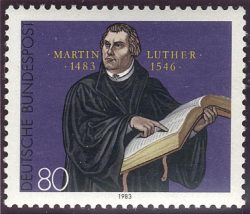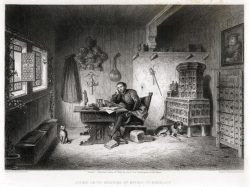Luther and Bible Reading
Before the Reformation the Bible was mainly read by a priest to a church community during an act of worship, and usually in Latin. This practice changed with the Reformers : because preaching had become more important, reading the Bible became the heart of the liturgy. Now that believers could read it in their own language, it was also read individually and within the family. Luther, through his work as a theologian and translator, influenced this change.
As a theology student, Luther discovered the immense spiritual wealth that was hidden in the Scriptures
Luther studied theology at Wittenberg University, where he later became a professor of theology, and was himself teaching. Amongst the texts he studied were the Psalms, Paul’s epistles to the Romans, the Galatians and the Hebrews. He used to read the text in great detail, paying particular attention to words which sometimes hid, sometimes disclosed the meaning within the constant tension between the spirit and the text in question. He was continually beset by the question where is the truth in these verses ? He thought that it could only be grasped by personal, critical reading of the Bible and that it should never be kept to yourself.
Luther as a translator of the Bible
In line with the phrase Sola Scriptura, Luther expressed the belief that the Bible was central to faith and far more important than the Church or spiritual life. In order to enable others to read the text thoughtfully and in detail, he took on the enormous task of translating both the Old and New Testaments into German. His translation, using the original Hebrew and Greek texts, underlined the tension between the letter and the spirit ; he used verbal structures which were both original and creative. Thus he completely turned away from any fundamentalism.
To help the reader grasp the meaning of the Bible in detail, Luther wrote commentaries to accompany his translation.
Of course, if one could not read at all it was impossible to even start reading the Bible. This is why Luther encouraged the building of schools in the towns which supported the Reform Movement. Consequently, among Protestants, there was soon quite a high level of literacy.
Progress in the tour
Associated tours
-

500 years ago… Luther posted his 95 theses!
According to tradition, in 1517, Martin Luther displayed 95 theses on the doors of the chapel of the castle of Wittenberg. The idea was to start a theological controversy on...
Associated notes
-
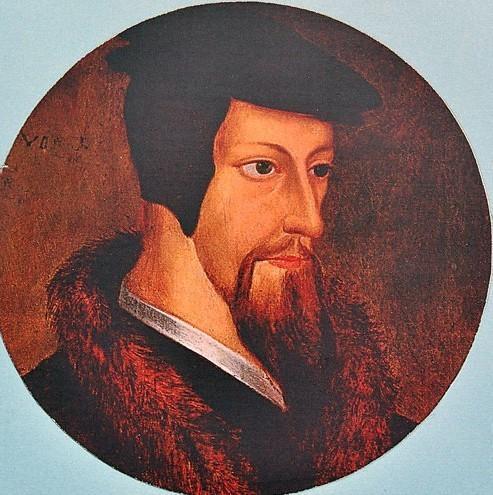
Calvin and the Bible
Although Calvin considered the Bible to be of fundamental importance in his theses, he cannot be considered a fundamentalist. The authority of the Scriptures, according to him, called for interpretation :... -

The Bible and Culture
The Bible opens up a whole world which it spreads before us as a neverending source of creative inspiration. The Scriptures have had a major influence on the arts and... -

Erasmus (1469-1536)
Erasmus was one of the main figures of 16th century Humanism ; he was cultured, tolerant and ahead of his time because he was European in outlook. He prepared the first... -
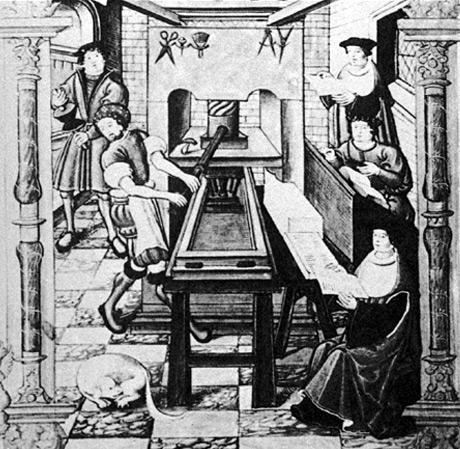
Humanism and translations of the Bible into the vernacular
The 16th century was a turning point in the history of the Bible ; it was widely distributed due to the invention of printing. Humanism advocated a return to the original... -
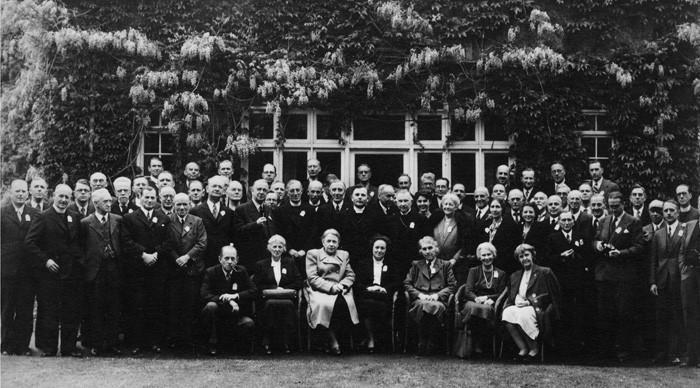
The beginning of the Bible Societies
Although the Bible had been translated into most European languages by the 19th century, it was only actually read by a small minority of educated people and was inaccessible to...

